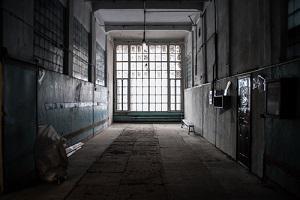Recent Blog Posts
The Choice Is Yours: Hiring a Personal Injury Lawyer for Your Case
 When you have been injured in an automobile accident, a slip-and-fall accident, or any other incident attributable to the actions or negligence of another person, you may need to take aggressive legal action to ensure that you receive full compensation for your injuries. Unfortunately, recovering damages in a personal injury case can be very difficult without responsible representation from a qualified legal professional. Choosing the right attorney can make a world of difference in the outcome of your case so it is important to consider your options carefully before making a decision.
When you have been injured in an automobile accident, a slip-and-fall accident, or any other incident attributable to the actions or negligence of another person, you may need to take aggressive legal action to ensure that you receive full compensation for your injuries. Unfortunately, recovering damages in a personal injury case can be very difficult without responsible representation from a qualified legal professional. Choosing the right attorney can make a world of difference in the outcome of your case so it is important to consider your options carefully before making a decision.
If you have been hurt and are looking for an injury lawyer to assist you in filing a claim or a lawsuit, there are many factors to take into account, including:
Type of Accident and Areas of Focus
Just because an attorney practices in the realm of personal injury law, it does not mean that he or she has experience with the type of accident or situation that caused your injuries. If you have been injured in a car accident, you will need a lawyer who understands traffic laws and how to work with auto insurance carriers to resolve difficult cases. Likewise, if you slipped and fell on a hazard in a grocery store or were bitten by a dog, you will want your attorney to be experienced with such cases and the applicable laws.
Report Finds Prosecutors Escape Accountability for Mistakes and Misconduct
 When you go to work every day, you are expected to perform at a certain level. You may have productivity standards or sales quotas that must be met, and you are almost certainly required to adhere to your company’s code of conduct policies. If you make a major mistake or deliberately break the rules, you are probably subject to some sort of disciplinary process which could ultimately cost you your job. At the very least, you will likely be expected to remedy your error if possible. While such expectations apply to most people who work for a living, it seems that criminal prosecutors—for whom a major mistake or misconduct could ruin another person’s life—are often exempt. A report released earlier this year found that prosecutors who commit misconduct or make serious mistakes in their prosecution of criminal cases are very rarely held accountable for their actions.
When you go to work every day, you are expected to perform at a certain level. You may have productivity standards or sales quotas that must be met, and you are almost certainly required to adhere to your company’s code of conduct policies. If you make a major mistake or deliberately break the rules, you are probably subject to some sort of disciplinary process which could ultimately cost you your job. At the very least, you will likely be expected to remedy your error if possible. While such expectations apply to most people who work for a living, it seems that criminal prosecutors—for whom a major mistake or misconduct could ruin another person’s life—are often exempt. A report released earlier this year found that prosecutors who commit misconduct or make serious mistakes in their prosecution of criminal cases are very rarely held accountable for their actions.
Hundreds of Examples
Family of Man Killed By Speeding Police Car Settles for $2.9 Million
 When police officers are responding to a call, it is not uncommon for them to go speeding through city streets—sometimes pausing at red lights, sometimes not. For a responding officer, time is of the essence, of course, as the situation to which he or she has been called can quickly go out of control. When a private citizen is speeding along the highway or on city roads, he or she is typically responsible for any accidents, damages, or injuries that may arise as a result. But what about police officers? Can they be held accountable when an accident occurs in the line of duty?
When police officers are responding to a call, it is not uncommon for them to go speeding through city streets—sometimes pausing at red lights, sometimes not. For a responding officer, time is of the essence, of course, as the situation to which he or she has been called can quickly go out of control. When a private citizen is speeding along the highway or on city roads, he or she is typically responsible for any accidents, damages, or injuries that may arise as a result. But what about police officers? Can they be held accountable when an accident occurs in the line of duty?
Tragic Circumstances
In July of 2012, a 50-year-old Hartford man was driving along Albany Avenue, and was heading—with a green light—through the Woodland Street intersection. Seemingly out of nowhere, the man’s car was broadsided by a speeding police cruiser heading south on Woodland Street and running the red light. The man’s car was crushed on the passenger side and was pushed into a building on the side of the road. He was taken immediately to the hospital with severe injuries, where he died a week later. The officer driving the police cruiser was not hurt.
New Law Provides Advocacy in Animal Cruelty Cases
 We Americans love our pets. According to estimates from the American Society for the Prevention of Cruelty to Animals (ASPCA), between 37 and 47 percent of all United States households own at least one dog while 30 to 37 percent of households own at least one cat with many owning more than one. These numbers equate to as many as 80 million dogs and 96 million cats owned as pets throughout the country. Companion animals, in the overwhelming majority of cases, are treated with love and care and are provided a comfortable life by their owners. When the animals develop a need, the owners step up and address it with appropriate veterinary care or other reasonable considerations. But, what about animals who are not in a loving home? What about those who are forced to suffer deplorable conditions and unimaginable cruelty? Who speaks for them? Thanks to a new law in Connecticut, abused animals can now be provided advocates for their interests in criminal cases regarding animal cruelty.
We Americans love our pets. According to estimates from the American Society for the Prevention of Cruelty to Animals (ASPCA), between 37 and 47 percent of all United States households own at least one dog while 30 to 37 percent of households own at least one cat with many owning more than one. These numbers equate to as many as 80 million dogs and 96 million cats owned as pets throughout the country. Companion animals, in the overwhelming majority of cases, are treated with love and care and are provided a comfortable life by their owners. When the animals develop a need, the owners step up and address it with appropriate veterinary care or other reasonable considerations. But, what about animals who are not in a loving home? What about those who are forced to suffer deplorable conditions and unimaginable cruelty? Who speaks for them? Thanks to a new law in Connecticut, abused animals can now be provided advocates for their interests in criminal cases regarding animal cruelty.
Personal Injury Claims and the Statute of Limitations in Connecticut
 Are you a procrastinator? When you have an important yet stressful task to complete, do you actively or subconsciously find other things to do to put it off-things like repeatedly checking your email, suddenly remembering a closet that needs to be cleaned out, or distracting yourself with hours of your favorite television show? Research on the subject suggests that chronic procrastination affects up to a quarter of the U.S. population. While putting things off can cause issues when the tasks are difficult but relatively mundane, procrastination in certain situations—like following a car accident or other injury-causing event—can potentially cost you thousands of dollars and compromise your legal rights.
Are you a procrastinator? When you have an important yet stressful task to complete, do you actively or subconsciously find other things to do to put it off-things like repeatedly checking your email, suddenly remembering a closet that needs to be cleaned out, or distracting yourself with hours of your favorite television show? Research on the subject suggests that chronic procrastination affects up to a quarter of the U.S. population. While putting things off can cause issues when the tasks are difficult but relatively mundane, procrastination in certain situations—like following a car accident or other injury-causing event—can potentially cost you thousands of dollars and compromise your legal rights.
Defining a Statute of Limitations
When you have been injured due to the actions or negligence of another party, the law in Connecticut typically requires you to take legal action—if you wish—within a certain period of time following your injury. The amount of time you have to file a claim depends on the type of injury you have sustained and the legal basis for your intended suit. The law that provides the applicable timeframe is known as the statute of limitations, and failure to file within the allotted time may leave you unable to collect compensation for your injuries.
Testimony Based on Firearms Analysis May Be Less Reliable Than You Think
 Forensic science is the application of research, analysis, technology, and science in civil and criminal law proceedings. If you have turned on a television in the last decade and a half, you have probably seen at least one if not dozens of dramas depicting fictionalized versions of forensic investigation. When forensics experts provide testimony or evidence in a criminal case, it is easy to presume that the results in question are fully reliable and backed by solid scientific research.
Forensic science is the application of research, analysis, technology, and science in civil and criminal law proceedings. If you have turned on a television in the last decade and a half, you have probably seen at least one if not dozens of dramas depicting fictionalized versions of forensic investigation. When forensics experts provide testimony or evidence in a criminal case, it is easy to presume that the results in question are fully reliable and backed by solid scientific research.
In recent years, however, it appears that forensic investigators have been overstating the reliability of some of their most well-known methods, including those used to “match” a bullet to a particular firearm. The issue has become such a concern that an appellate court judge in Washington, D.C. addressed the matter in an opinion filed in the appeal of a murder conviction.
Common Methodology
Coach Liability for On-Field Sports Injuries
 While school-aged children around the country are getting back into the full swing of classes, many parents and members of the community look forward to fall Friday nights, the traditional setting for high school football games. There are few things that match the pageantry of a football game: the marching band, the cheerleaders, excitement by the teams on both sidelines, and then the cracking of pads as the game gets underway. When the action comes to screeching halt due to an injury on the field, however, there is often a moment of terror for the injured player’s family.
While school-aged children around the country are getting back into the full swing of classes, many parents and members of the community look forward to fall Friday nights, the traditional setting for high school football games. There are few things that match the pageantry of a football game: the marching band, the cheerleaders, excitement by the teams on both sidelines, and then the cracking of pads as the game gets underway. When the action comes to screeching halt due to an injury on the field, however, there is often a moment of terror for the injured player’s family.
In most cases, on-field injuries are relatively minor—cramps, sprains, strains—are all very common in football and other interscholastic sports. Sometimes, however, things are much more serious. Broken bones, torn ligaments, and head or neck injuries can have a dramatic impact on the player’s future. If your child has been seriously injured on the field of play, you may be wondering if it is possible to hold the coaching staff liable for your child’s injuries.
Are Prisons Today’s Asylums for the Mentally Ill?
 The town of Preston, Connecticut, is home to a site popular among enthusiasts of the strange and paranormal. The crumbling remains of an asylum—most recently known as the Norwich State Hospital, but once called The Norwich Hospital for the Insane—have been used as a backdrop for haunted house reality television shows and as a project for paranormal investigators. Apart from being scary and disturbing, the abandoned asylum—which closed in 1996—begs an altogether different question. If asylums were once common throughout the country as a home or care facility for the mentally ill, what are we doing with such individuals now that most such facilities are closing? The answer, according to many, seems to be that we are simply holding them in different institutions now—institutions known as correctional facilities or prisons.
The town of Preston, Connecticut, is home to a site popular among enthusiasts of the strange and paranormal. The crumbling remains of an asylum—most recently known as the Norwich State Hospital, but once called The Norwich Hospital for the Insane—have been used as a backdrop for haunted house reality television shows and as a project for paranormal investigators. Apart from being scary and disturbing, the abandoned asylum—which closed in 1996—begs an altogether different question. If asylums were once common throughout the country as a home or care facility for the mentally ill, what are we doing with such individuals now that most such facilities are closing? The answer, according to many, seems to be that we are simply holding them in different institutions now—institutions known as correctional facilities or prisons.
Staggering Estimates
According to data collected by the Treatment Advocacy Center (TAC), a nonprofit organization which helps the mentally ill get the treatment they need, the American prison system currently houses more inmates with severe mental illness than are in state psychiatric hospitals—and the numbers are not even close. The TAC reported that in 2012, more than 350,000 inmates with severe mental illness were incarcerated, but only about 35,000 severely mentally patients were under the care of state hospitals.
Warning Signs of an Impending Dog Attack
 Did you know that, according to the Centers for Disease Control and Prevention (CDC), there are nearly 5 million dog-bite incidents in the United States every year? While many such bites do not cause serious injury, some 20 percent of dog-bite victims will require medical attention, and an average of more than 1,000 victims per day will seek emergency treatment for injuries related to dog bites.
Did you know that, according to the Centers for Disease Control and Prevention (CDC), there are nearly 5 million dog-bite incidents in the United States every year? While many such bites do not cause serious injury, some 20 percent of dog-bite victims will require medical attention, and an average of more than 1,000 victims per day will seek emergency treatment for injuries related to dog bites.
Very few dogs will attack without some type of warning. In most cases, there are a number of signs that the animal is getting agitated and may be about to attack. While such warning signs may seem subtle, they are fairly easy to recognize once you are aware of them. Be very careful if you are near a dog is:
- Growling and snapping: Aggressive behavior is one of the easiest-to-recognize indications that a dog may be about attack. Nipping, growling, and bared teeth are common when a dog feels threatened and the need to protect itself may become overwhelming;
Medical Examiners Wield Significant Power in Criminal Cases
 In certain cases, the evidence that a crime has been committed is almost overwhelming. For example, a store’s broken window combined with missing merchandise are fairly strong indications that a burglary has taken place. Violent crimes often leave similar evidence in the form cuts, bruises, wounds, and other injuries that leave little doubt as to the nature of the behavior that caused them. Sometimes, however, the physical evidence available does not offer a very clear picture of what occurred, or, even that something illegal ever happened. Medical examiners tend to be at the center of such controversy, as was the case recently in Massachusetts when a physician in the employ of the state changed his opinion regarding the death of a 6-month-old baby girl.
In certain cases, the evidence that a crime has been committed is almost overwhelming. For example, a store’s broken window combined with missing merchandise are fairly strong indications that a burglary has taken place. Violent crimes often leave similar evidence in the form cuts, bruises, wounds, and other injuries that leave little doubt as to the nature of the behavior that caused them. Sometimes, however, the physical evidence available does not offer a very clear picture of what occurred, or, even that something illegal ever happened. Medical examiners tend to be at the center of such controversy, as was the case recently in Massachusetts when a physician in the employ of the state changed his opinion regarding the death of a 6-month-old baby girl.
The Tragic Death of an Infant
More than two years ago, in March of 2014, a 6-month-old baby girl died at Boston Children’s Hospital after lapsing into unconsciousness while under the care of a sitter. The medical examiner who conducted the girl’s autopsy studied the case for a full year before releasing a report that baby had died as a result of shaken-baby syndrome. The examiner pointed to spinal fractures, retinal injuries, and swelling in the child’s brain. As a result, the sitter was charged with child’s murder.






